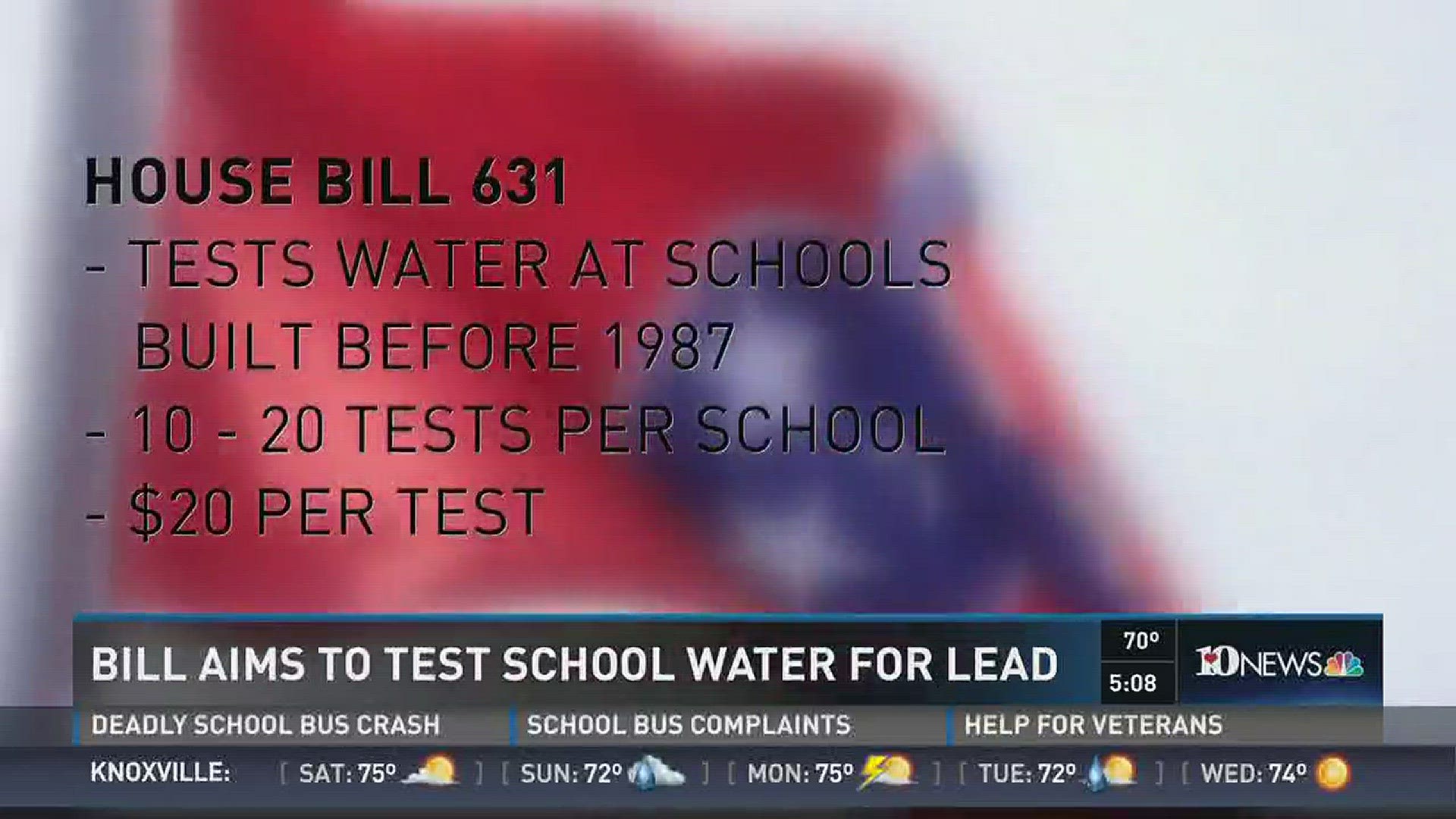A bill introduced by a Knoxville Representative would require schools built before 1987 to annually test their drinking water for lead.
The sponsor of House Bill 631, state Rep. Rick Staples, says it's meant as a safeguard since federal regulations barring lead in public water utilities weren't passed until 1987.
"We say our children are our future. We want to invest in our children and we want our children to be the best and brightest," said Staples, a Democrat. "We won't have anything in place lets us know how much lead if any is in the drinking water."
Conservative house members are concerned that the bill is redundant.
"We need to look at it and make sure that we're not putting unfunded mandates on locals. If this is already happening and they're taking care of the problem, then is this bill needed?" said state Rep. Eddie Smith (R-Knoxville).
In Knox County alone, 89 schools were built before the lead ban.
"The part of the bill that gave me the greatest concern was the vagueness of how often re-testing could happen," Smith said. "Theoretically the commissioner of Tennessee Department of Environment and Conservation could require re-testing everything single month, which instead of costing $20,000 it could end up costing the school system in excess of $200,000. That's four or five teachers that the school system could hire instead of testing that frequently."
Knox County Schools Chief Operating Officer Russ Oaks said Knox County Schools tests water for lead at 20 percent of its schools each year. Under the system's current program, each school is tested every five years.
In 2007, the school district and KUB tested for lead and upgraded what Oaks said is "a few fixtures" that brought the district into compliance with EPA standards.
Staples said the bill is important so that districts across the state can monitor water data.
"We are in a position where we are trying to be proactive, not reactive. Nobody wants to end up in a situation like we had in Flint, unfortunately, so we're just trying to get something in place, study this data, see how consistent it is and think about our children's safety and health," Staples said.

